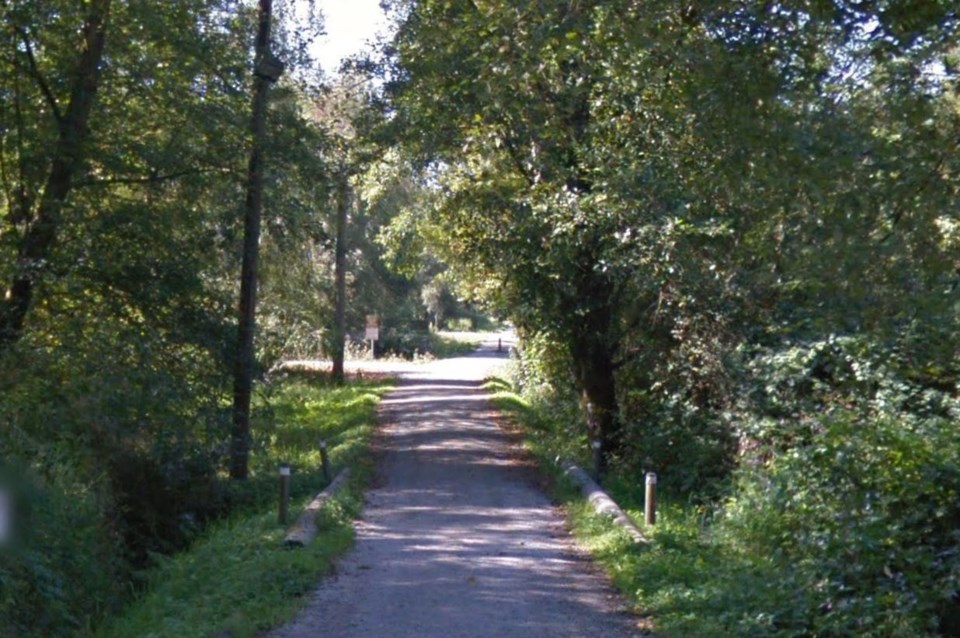A plan to build a cycling and pedestrian path on the southeast side of Burnaby Lake is proving more difficult than just a “quick pave.”
The Burnaby Lake Southeast Cycling Greenway will “definitely not” be getting paved this year, according to Christopher Stacey, Burnaby’s director of engineering projects.
Not only are there issues with who owns which parts of the two-kilometre stretch (owners include Metro Vancouver, BC Hydro and the federal government), but the cost will be high due to the park’s boggy geography.
“If it’s going to be done correctly through that marshy bogland, it’s going to require a lot of earthworks and a lot of drainage works – and it’s going to be very expensive,” Stacey told councillors at a committee meeting July 16.
The existing trail can’t be paved because it would be “destroyed” in less than a year as the ground is unstable and sinking, according to Stacey.
He said BC Hydro has denied the city a permit to smooth the path and doesn’t want any work done on its right-of-way until it’s able “to do an investigation.”
(The existing pedestrian path is fine as is, Stacey said, but paving it is where the complications come in.)
Stacey said Metro Vancouver, which manages the regional park, would like Burnaby to acquire the necessary properties, build the trail itself, and take on the long-term ownership and maintenance of the greenway.
“They (Metro Van) did say that they wanted it to be built, but they have no interest in building it, owning it or operating it, so they want to put all that responsibility on us,” Stacey said.
Metro Vancouver would give Burnaby a $4-million capital contribution to build the greenway, but Stacey estimated the project would cost three to four times that amount, not including the long-term ownership.
Stacey said high-level cost estimates were at least $10 million but added detailed hydrogeology studies could increase that number to $15 million.
Coun. Joe Keithley was not impressed by Metro Vancouver’s offer of $4 million.
“It just sounds like a financial trap that’s not going to work very well for us,” he said.
He added the greenway would benefit the city but needs buy-in from senior levels of government.
Coun. Sav Dhaliwal said purchasing land from the different agencies shouldn’t be an option due to the cost but suggested considering leasing areas.
Councillors asked the engineering department to bring back a full report.
Local horse groups have already pushed back on the paving plan.
The Burnaby Horsemen’s Association, supported by the Horse Council of BC, has opposed the project, saying pavement is not an ideal surface to ride horses on and can be dangerous.
“We know the importance of promoting active transportation, but we also know that paving these trails would negatively impact the horse community in Burnaby,” Sarah Allison, the Horse Council’s advisor of recreation services wrote to council.
The Vancouver-based Urban Horse Project said paving Avalon Trail would affect about 140 Burnaby residents who participate in the non-profit’s community horse programs.
Staff are putting together a report for council after the summer break, including data on how many Burnaby residents are members of the horsemen’s association.





